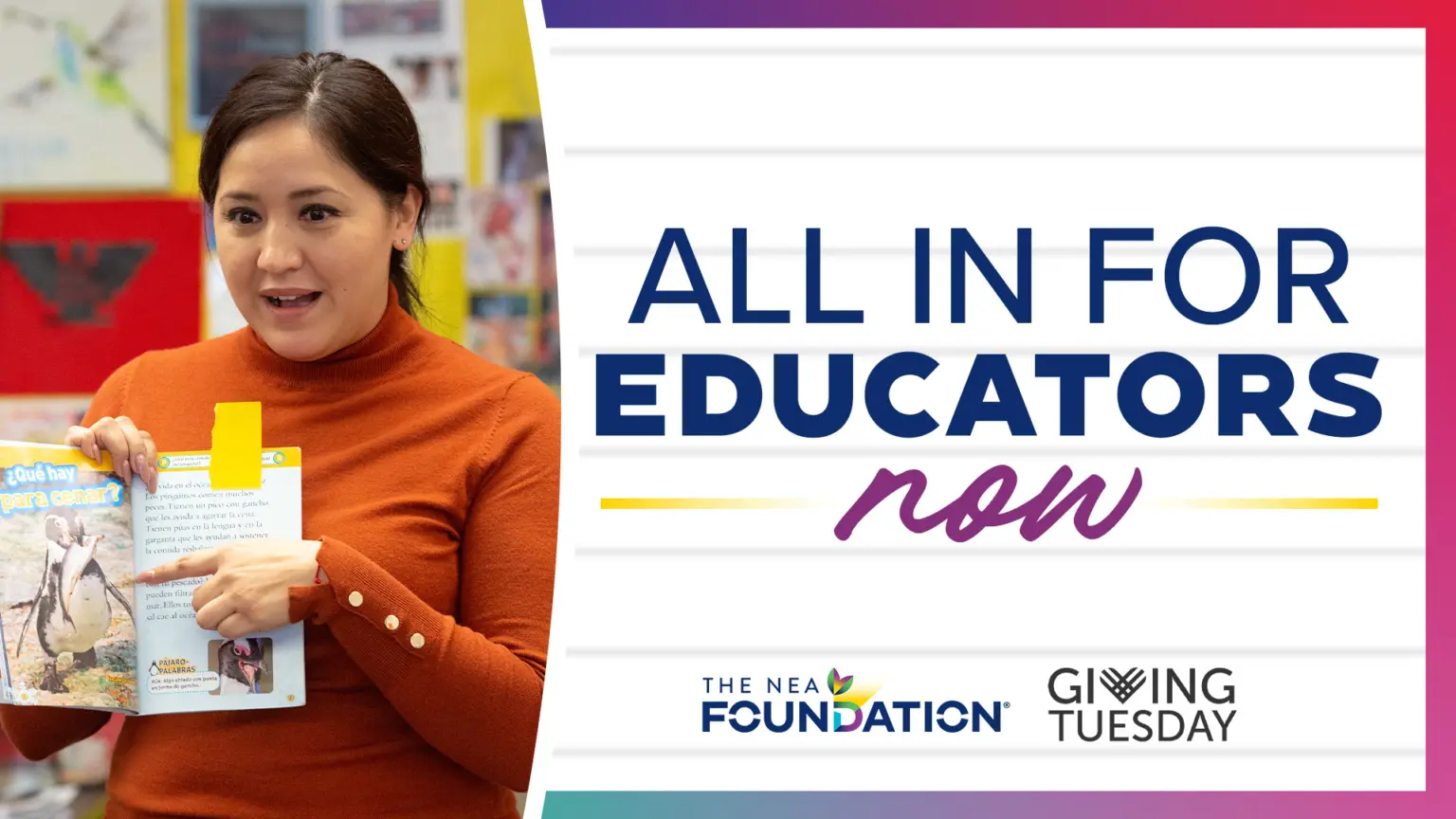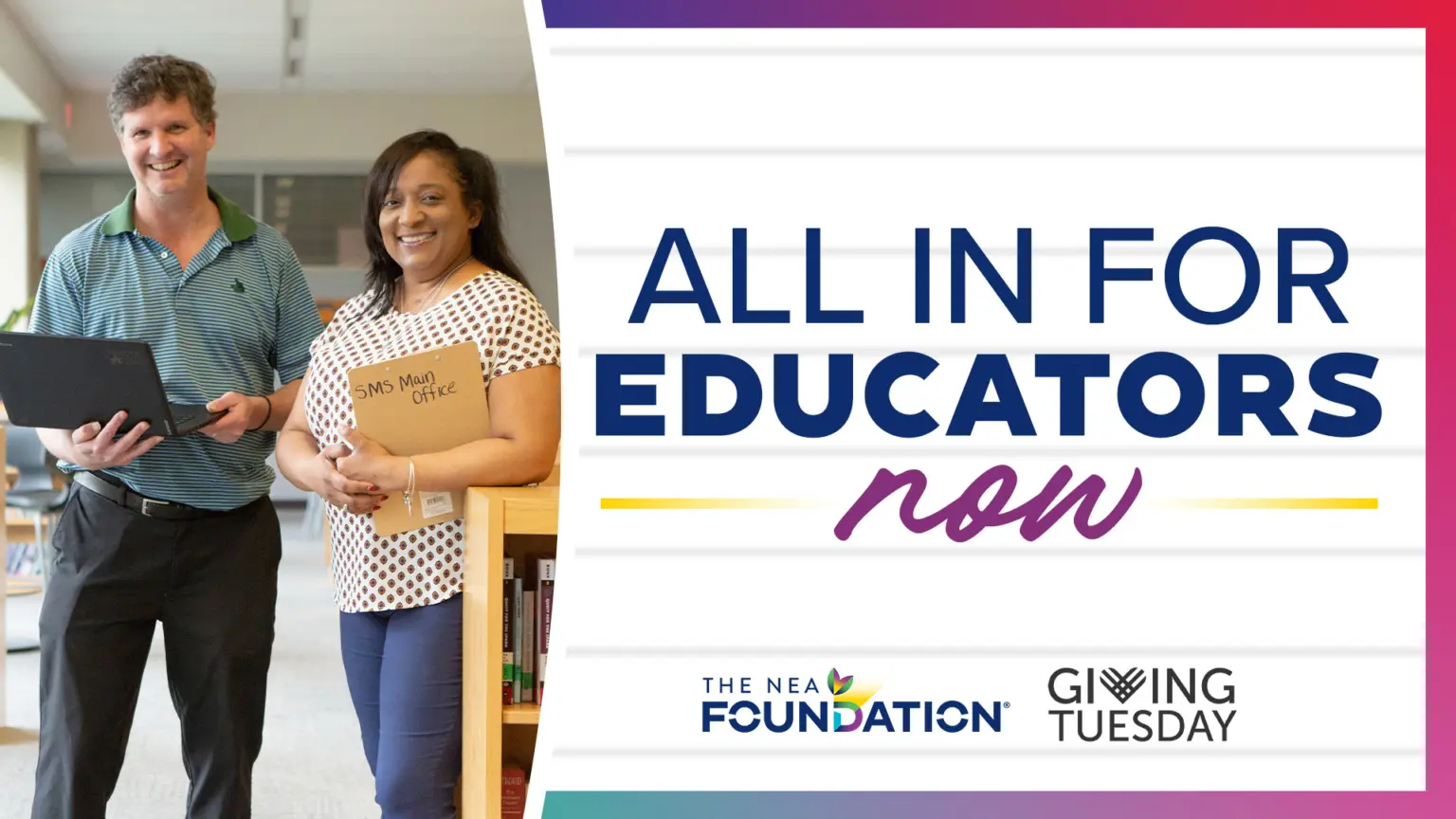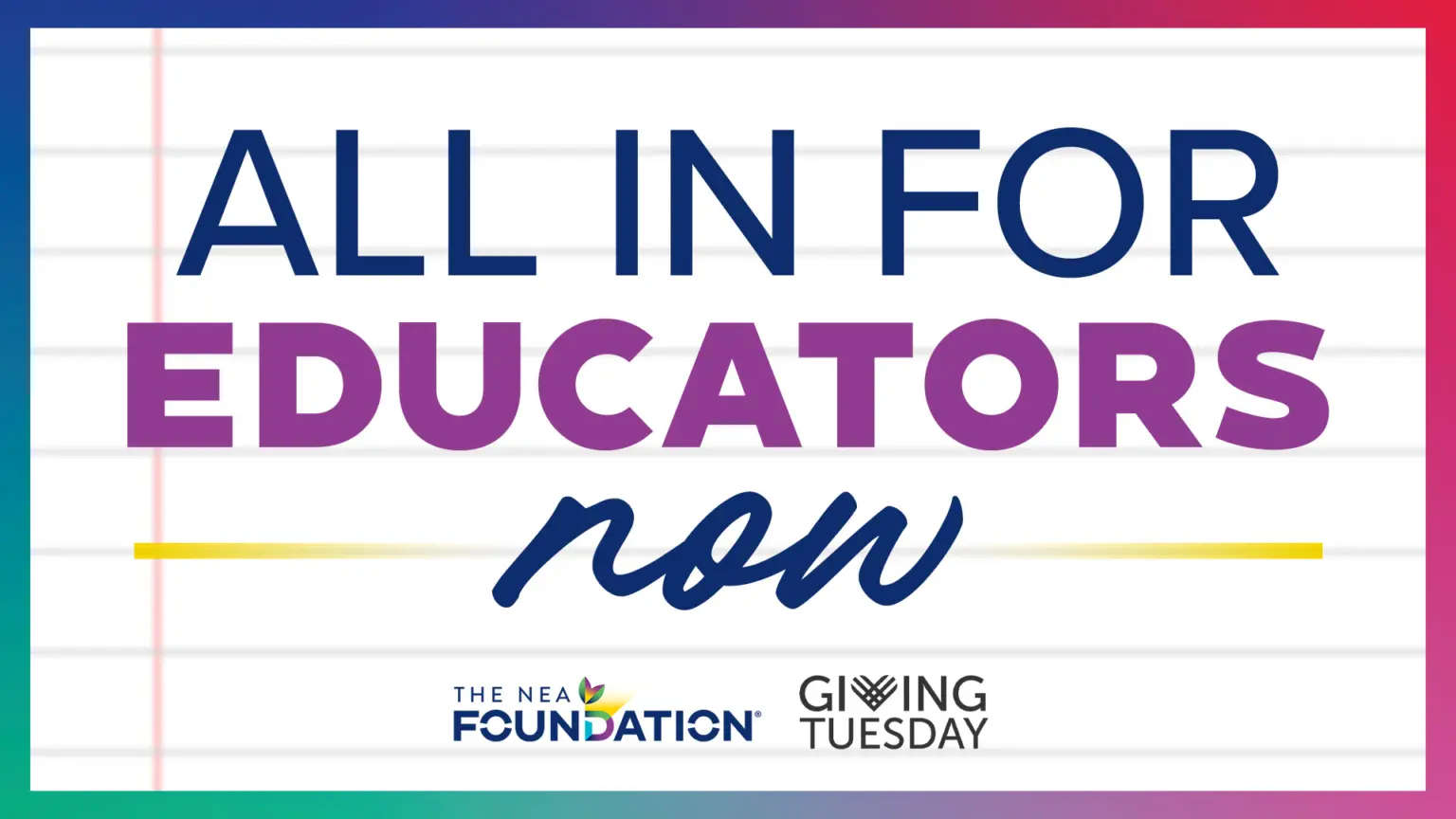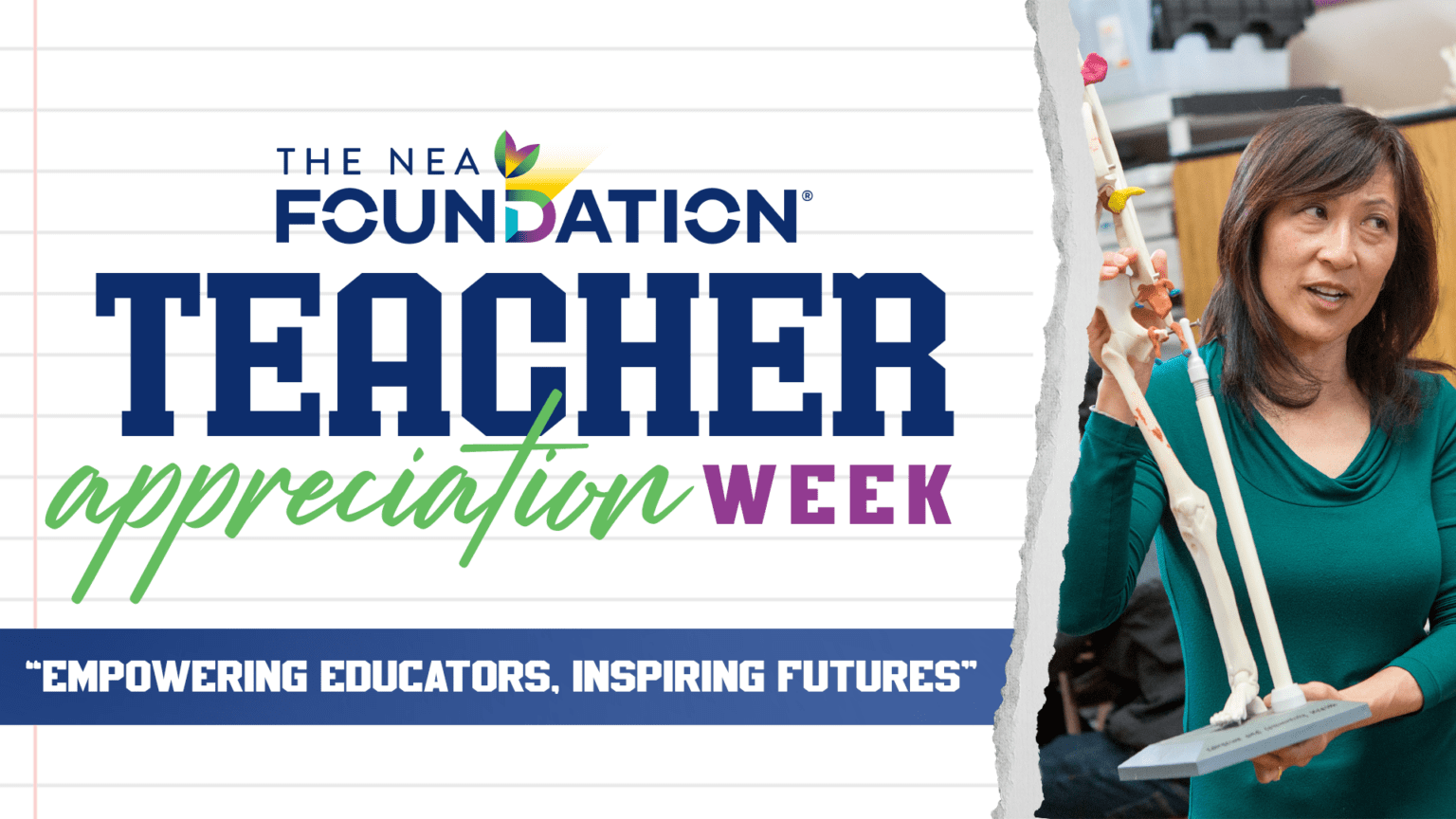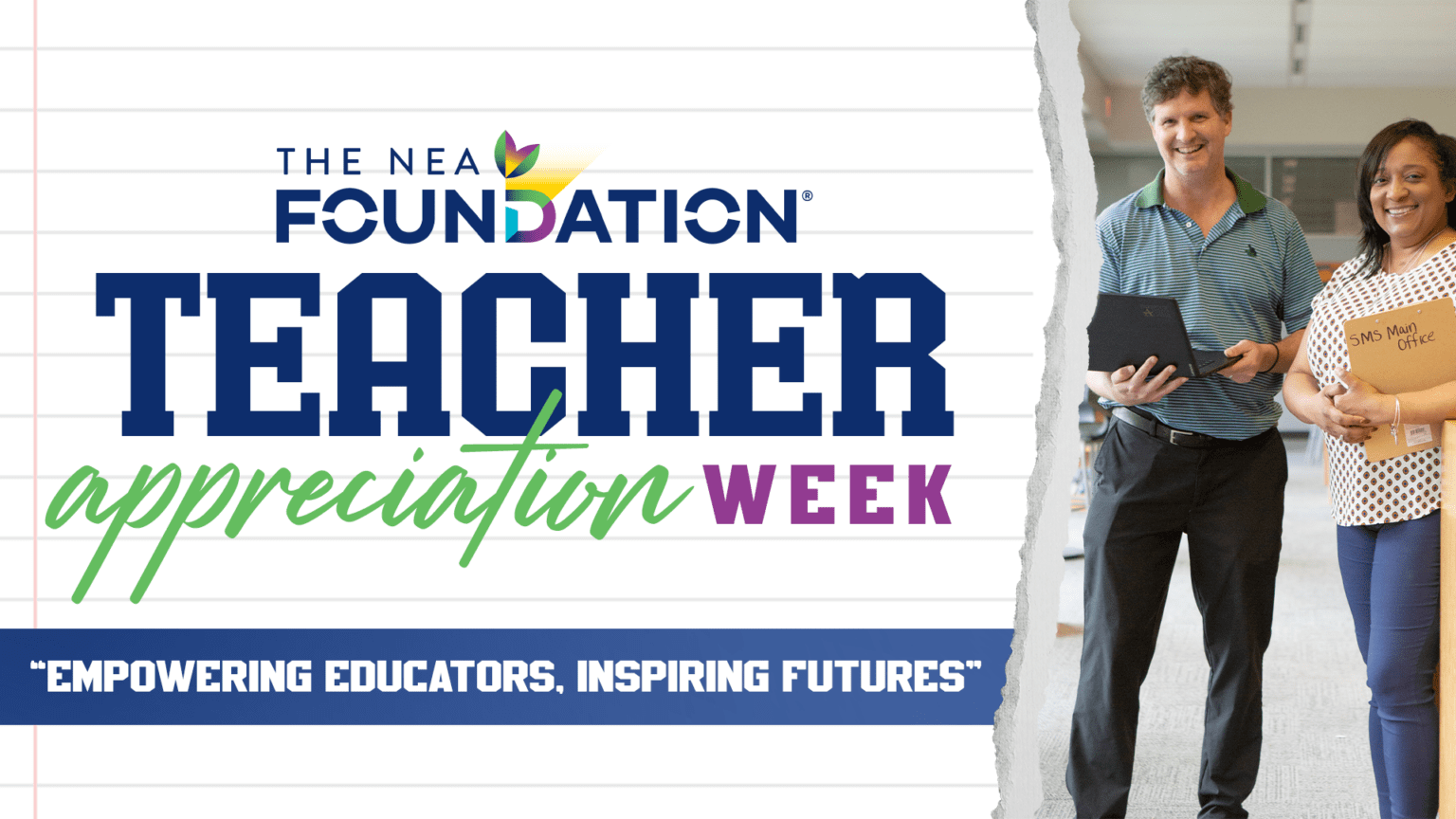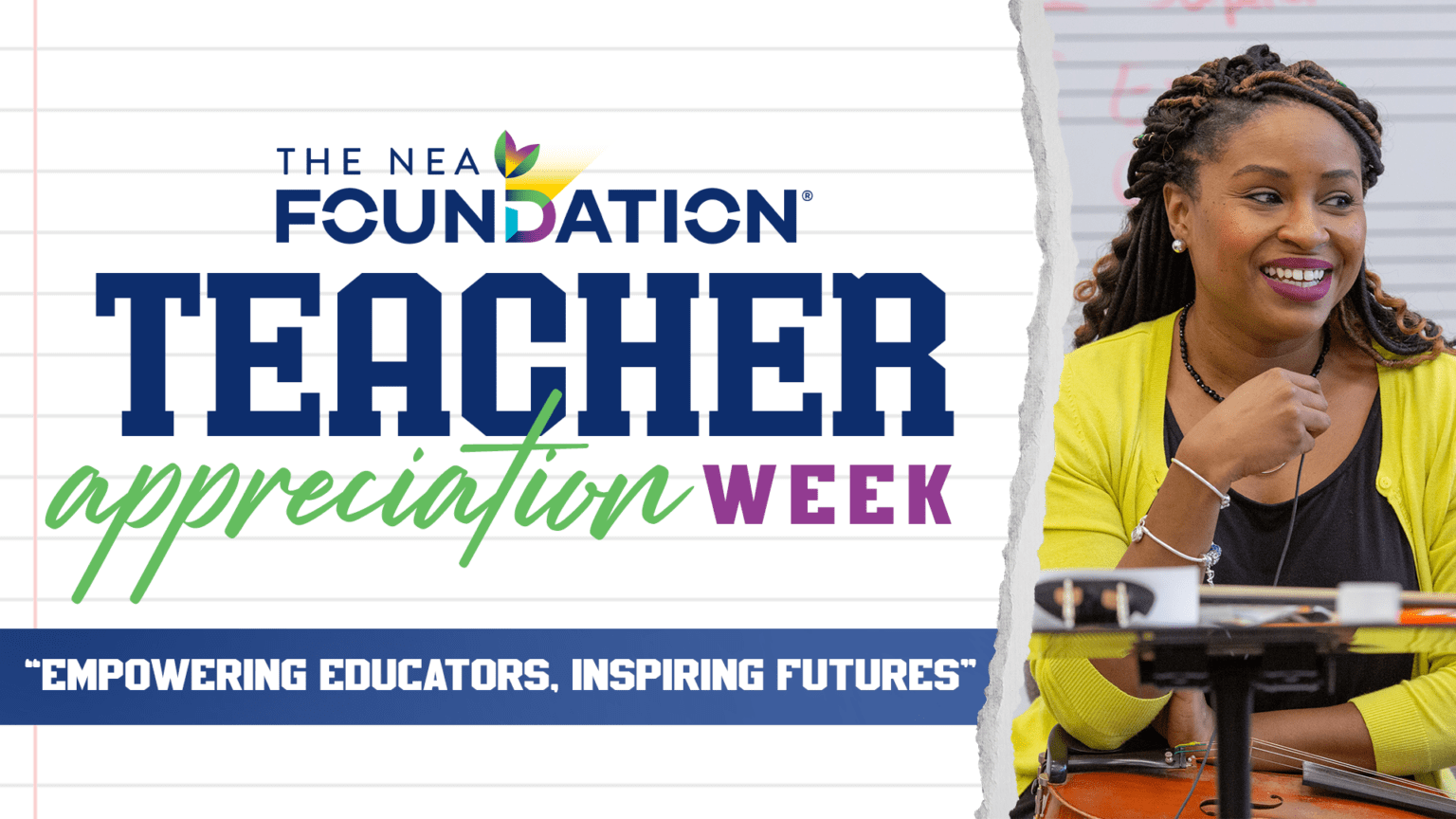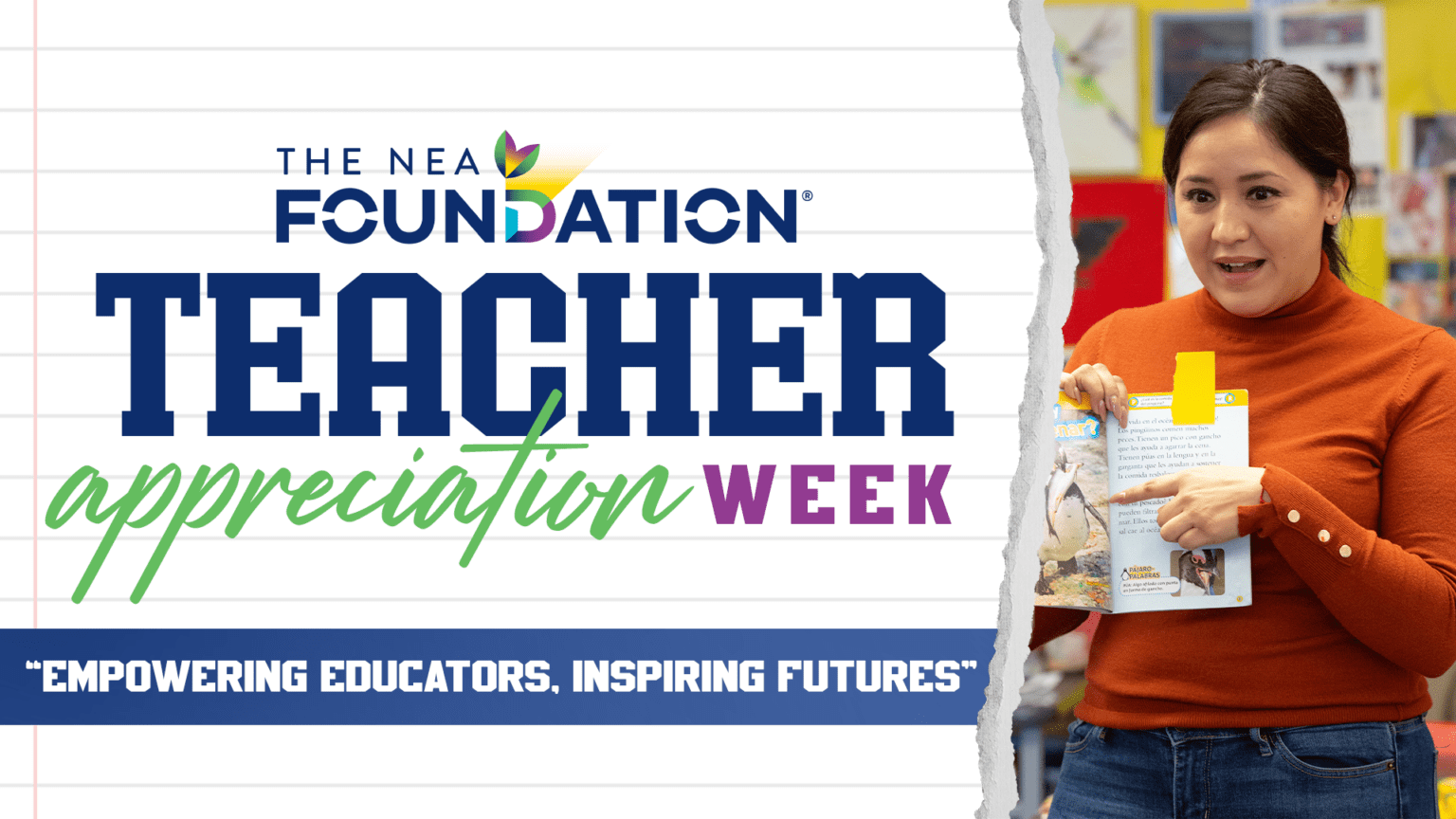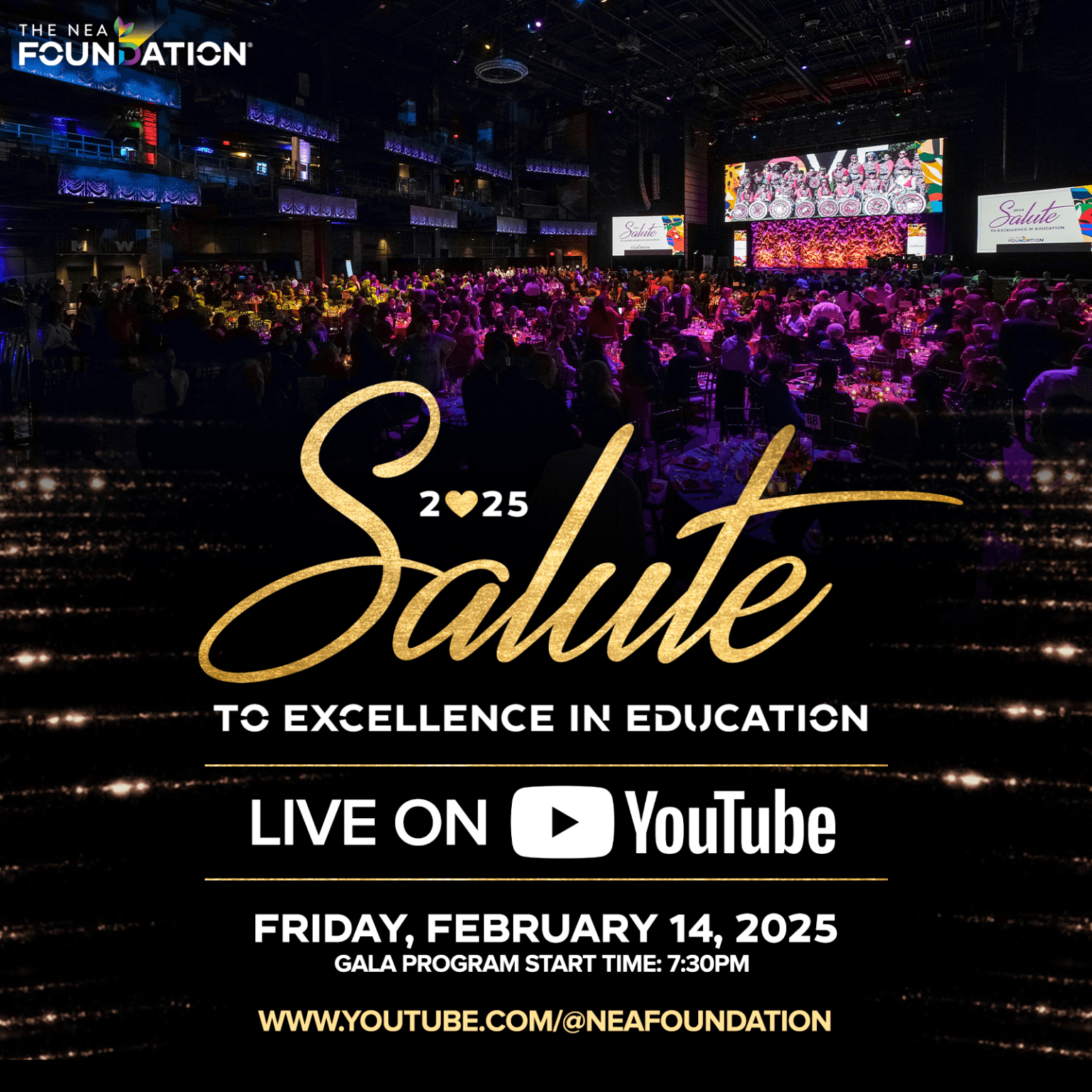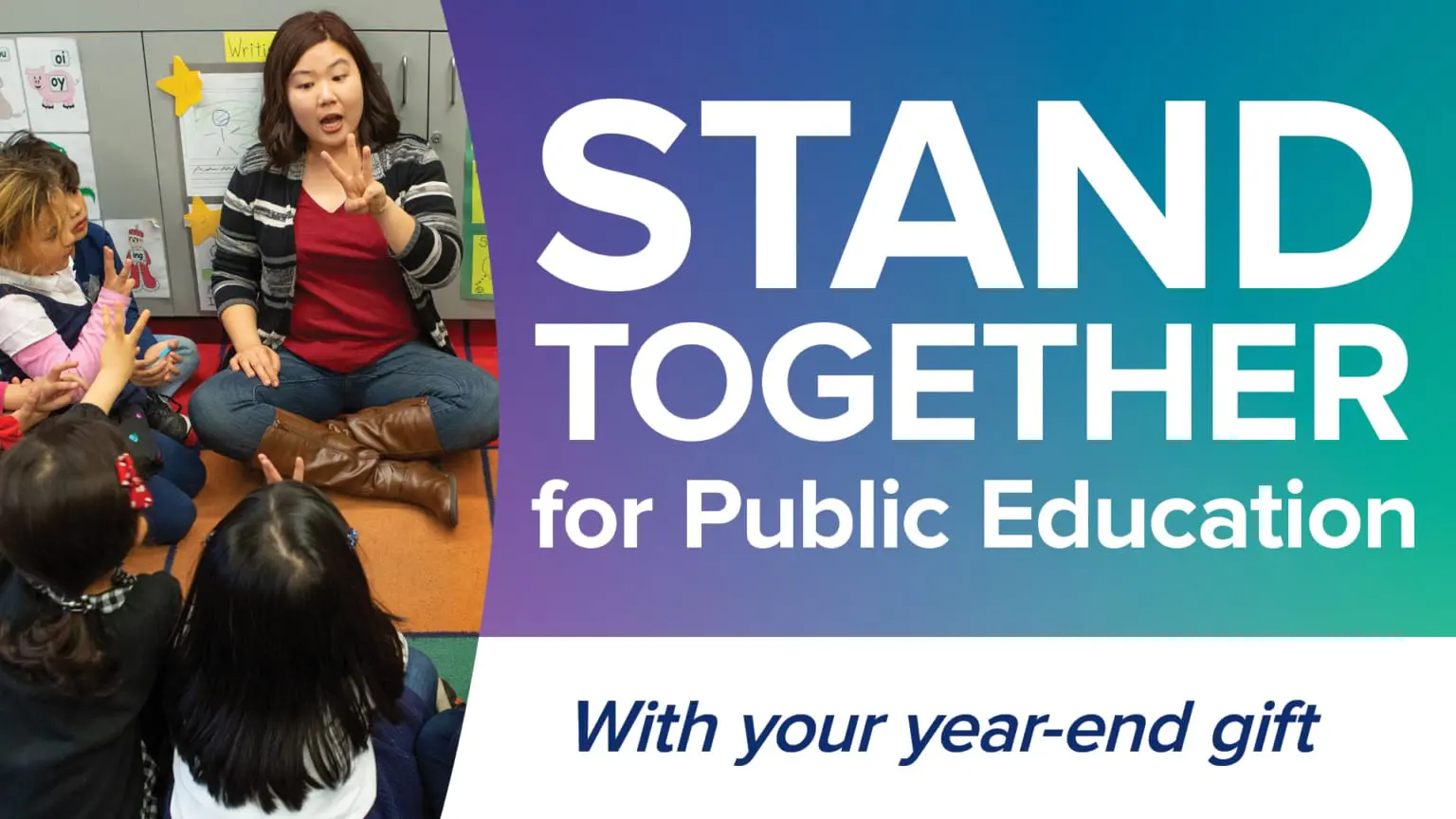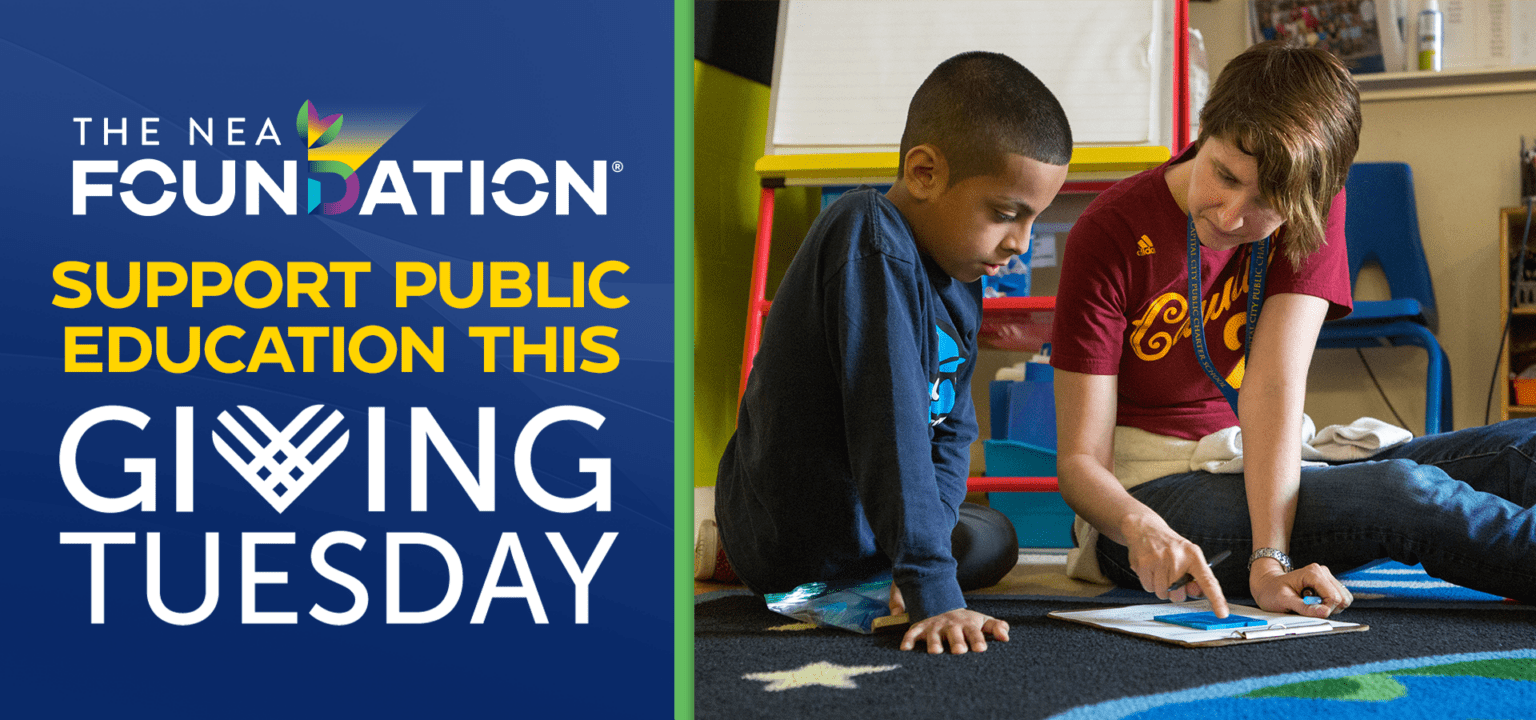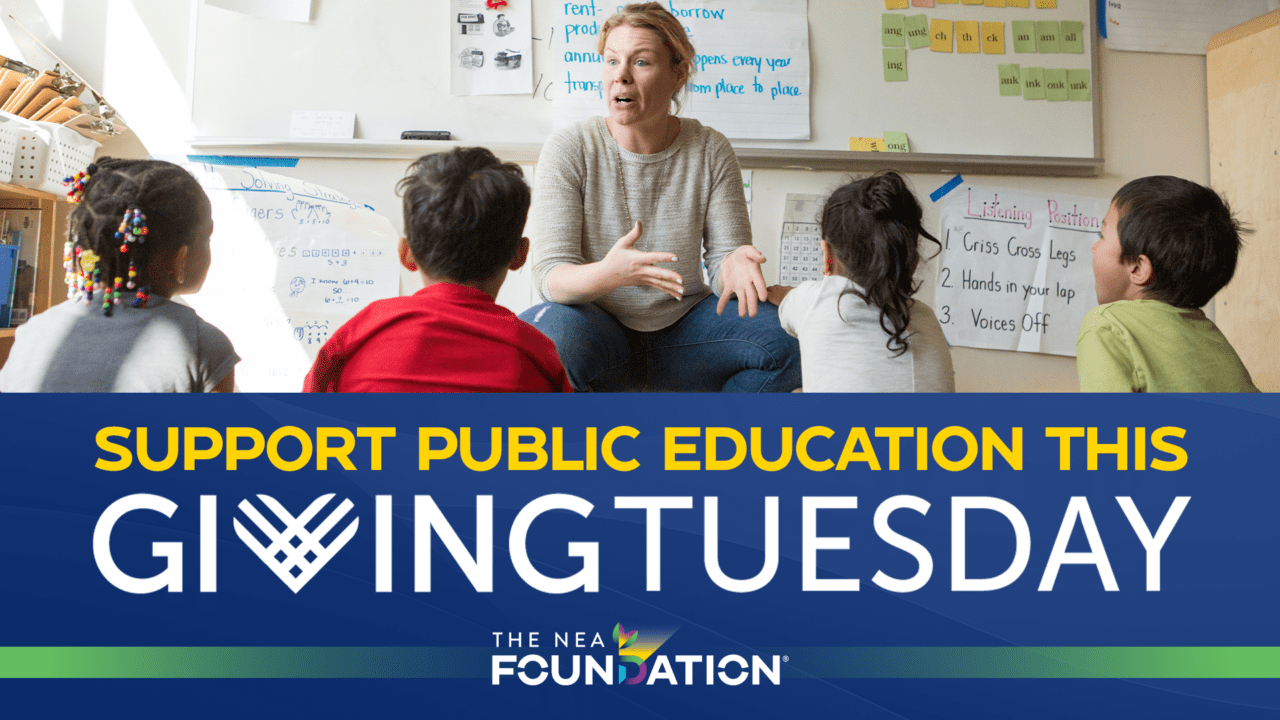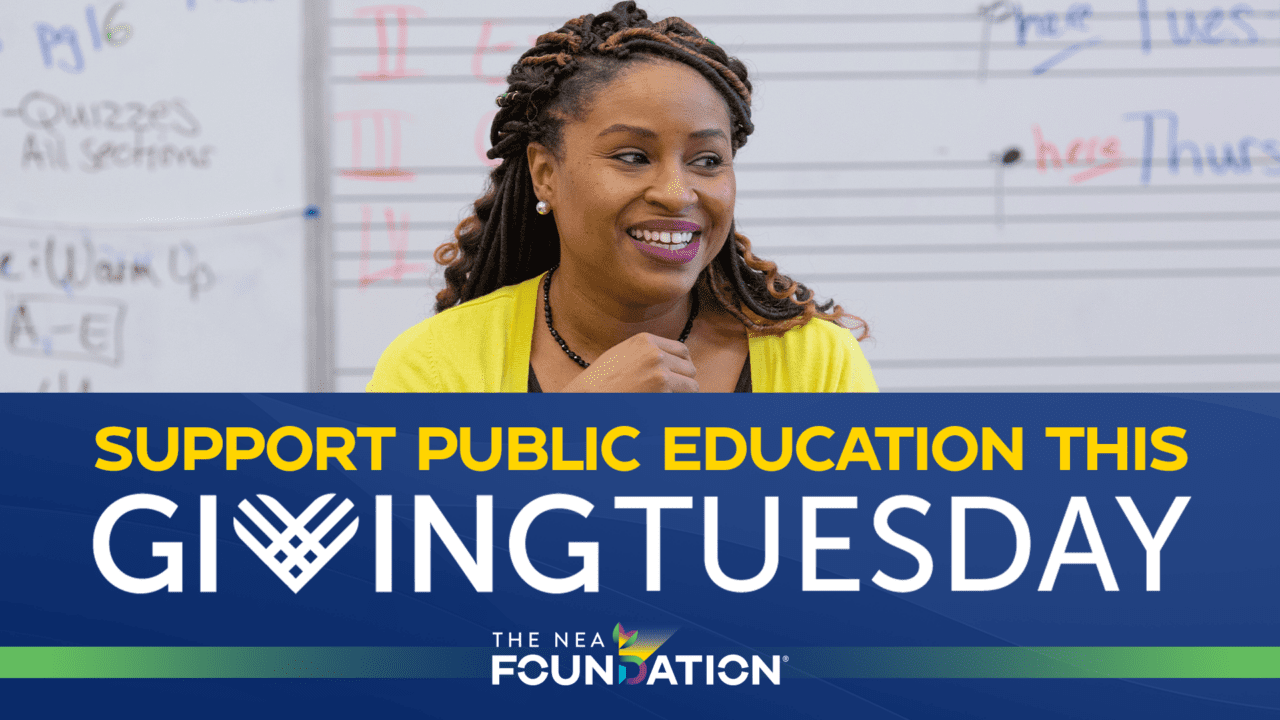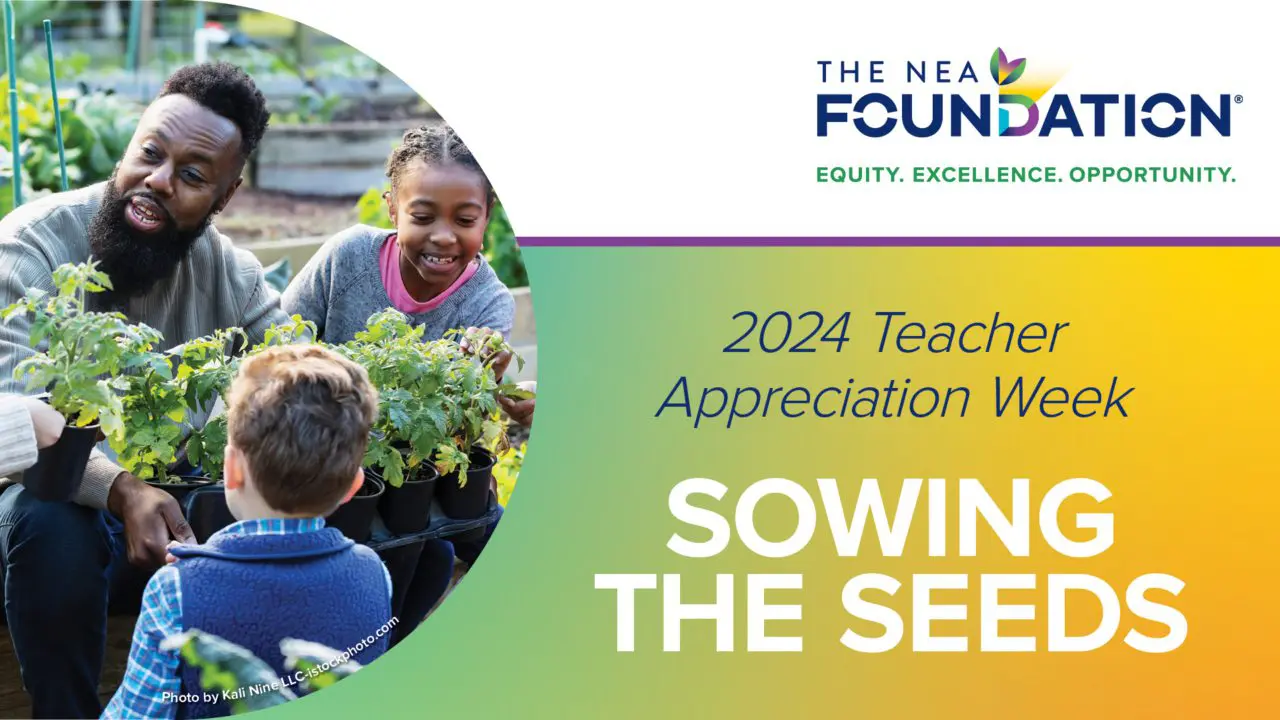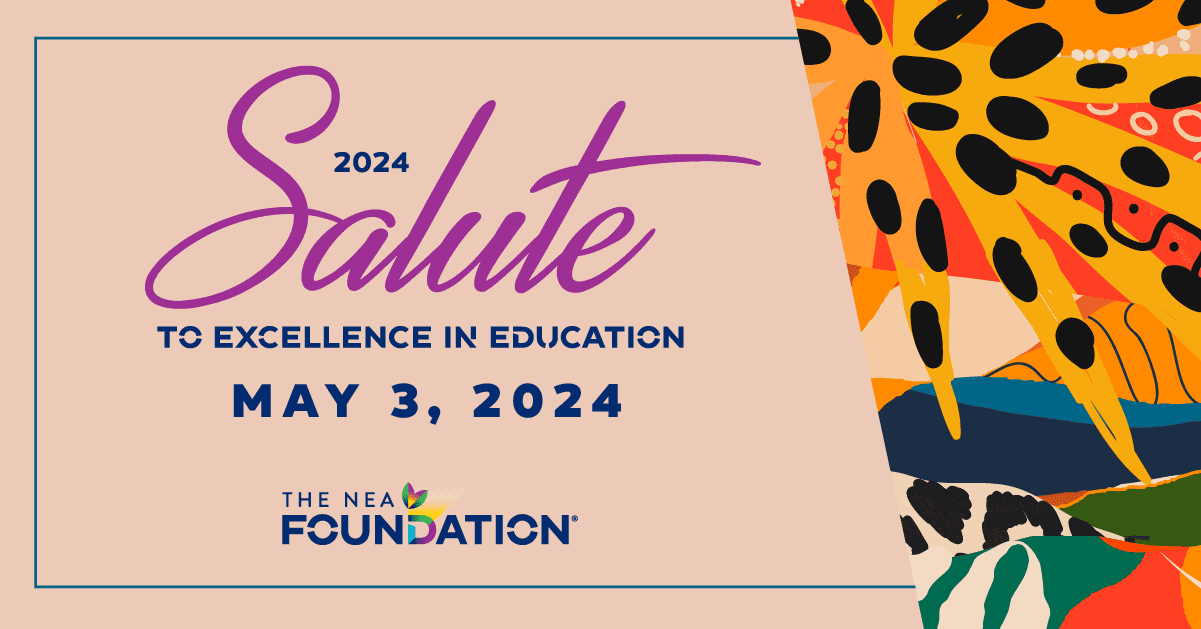
We recently talked to Joe Pizzo, an English educator at Black River Middle School in Chester, New Jersey. His NEA Foundation Learning and Leadership grant helped him develop a project that’s still engaging students years later, so we wanted to learn more about his ideas! Here’s what he told us. We’ve included some of his students’ projects for you to see as well.
Tell us about your NEA Foundation grant project.
After my students read Lois Lowry’s The Giver, we talk about the importance of color at the end of the novel. Students write a poem featuring one or more colors, which they share with their classmates for peer editing before developing a final draft.
However, their assignment is not yet finished. Then, my students take their text and transform it into digi-poems: writing enhanced with multimedia content to highlight the color and images in their poetry.
This digi-poem assignment drives students to hone their 21st century digital literacy skills as they gain a deeper understanding of the composition process. Through this innovative education program, my students combine fun with fundamentals.
What do students learn from this project?
The poems that my students have created are wonderfully powerful. The poems contain a number of poetic devices that we’ve studied and used throughout the year, such as metaphor, simile, personification, internal rhyme, repetition for effect, and description.
I often have to encourage them to keep their focus narrowed as they explore with enthusiasm the many technology enhancements available to them. They’ve used iMovies, Canva posters, Google Slides, Screencastify slides with voice, and more. The result: high-quality products developed by students across the skill-level spectrum.
What impact has this project had beyond literary and tech lessons?
The students enjoy this project so much that discipline problems are rare. At the end of the school year, I already had a few incoming seventh graders ask me about the digi-poem project and tell me that they couldn’t wait to get started. Their words are definitely music to the ears of this 42-year veteran teacher.
How are you sharing your innovative education program with others?
Last year, I presented my program as a prototype at the annual summer Fordham University DLC Conference. This year, I presented my program as a Best Practice there, and I will be sharing it at the NJEA Teachers’ Convention in November.
In addition, the National Council of Teachers of English is highlighting this project in their August edition of their “Legacy of Pride” feature.
What personal impact have you seen the digi-poem have on your students?
One of my students named Michael wrote such a powerfully patriotic digi-poem about our American flag that the Office of Veterans Affairs in Washington, D.C. asked me to write a guest blog featuring Michael’s poem “Stars and Stripes.”
Two weeks later Michael, his family, and I were invited to our Representative’s office so Congressman Lance could present Michael with a certificate and a flag that has been flown over the Capitol in Washington, D.C. Michael has also been invited by Executive Director John Keith Schwarz of the U.S.S. Houston CA-30 Survivors’ Association and Next Generations to read his poem at the opening of the Association’s annual conference and to lead the flag salute the next day.
Over the past 10 years, NEA Foundation Grants to Educators have supported almost 4,500 educators across the country with more than $7.1 million in grant funding. Are you an NEA Foundation grantee? Send your stories and photos to neafoundation@nea.org, and you might be featured in your own Lessons Learned blog.
Featured NEA Foundation grantee Joe Pizzo is an English educator at Black River Middle School in Chester, New Jersey. Check out the NEA Foundation website for more information on how to apply for grant resources. The next deadline for application is October 15, 2016.





